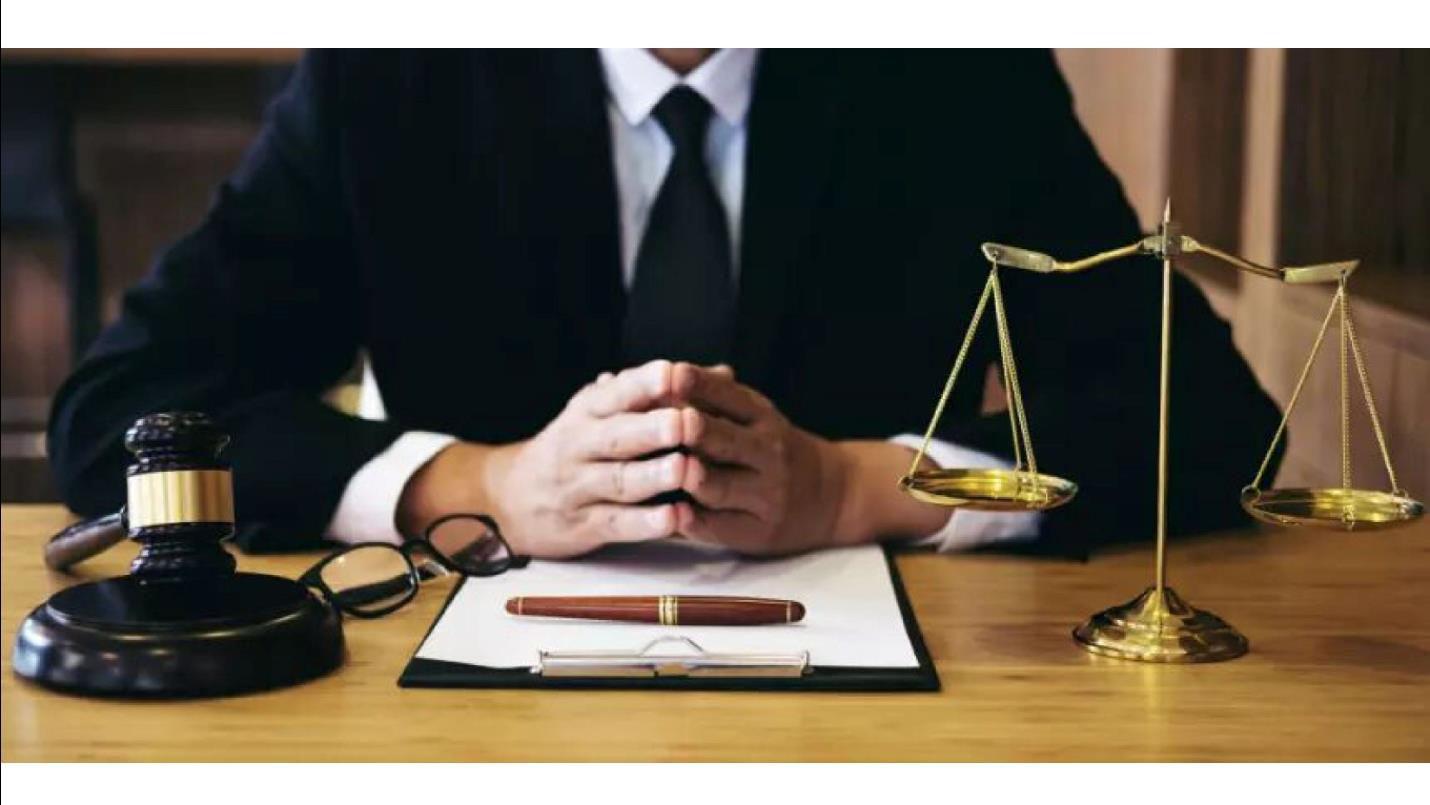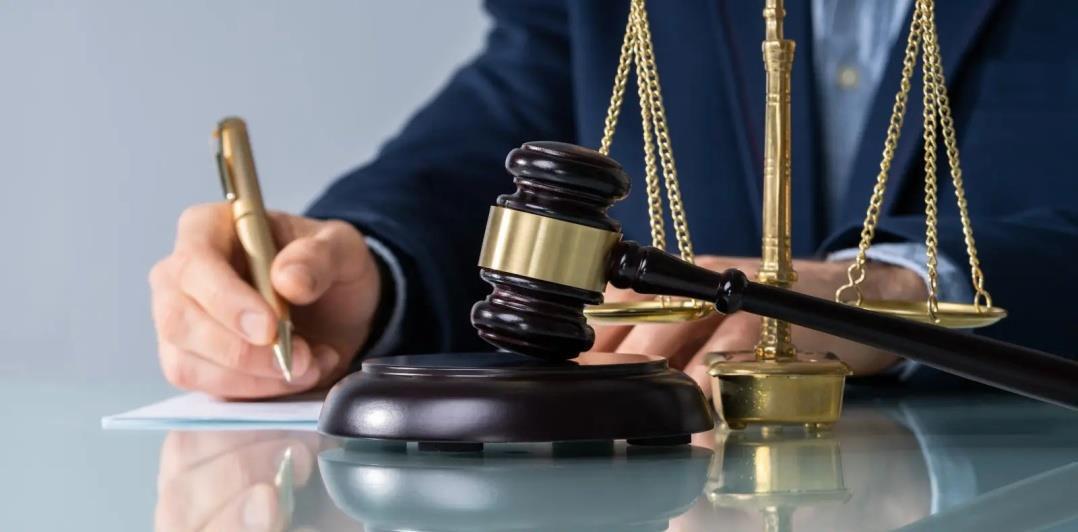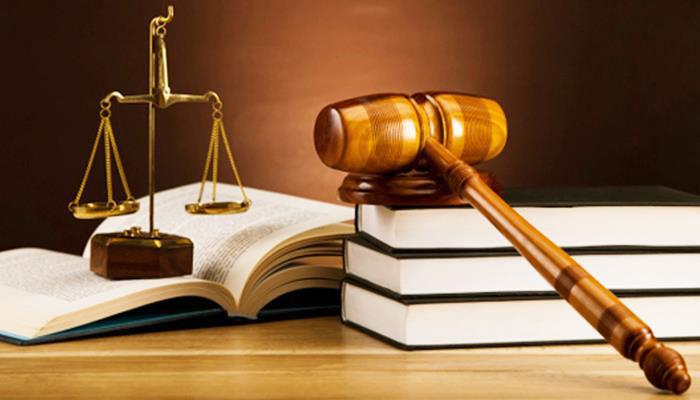
2wsWz-02,Sadh Nagar, Main Road Palam,New Delhi-45
Email - guptamanoj50@yahoo.com
Mobile : +91-9718451126, +91-7678535162


2wsWz-02,Sadh Nagar, Main Road Palam,New Delhi-45
Email - guptamanoj50@yahoo.com
Mobile : +91-9718451126, +91-7678535162
Criminal defense Lawyer in India has always been a vital aspect of the country's legal system. As defenders of justice, criminal Defense Lawyer play a critical role in ensuring that individuals accused of crimes receive a fair trial and that their constitutional rights are protected. As India evolves socially, economically, and technologically, the role and future of criminal Defense Lawyer are also undergoing significant changes. This comprehensive blog explores the current landscape, challenges, technological advancements, and prospects for criminal Defense Lawyer in India.

The Indian criminal justice system is a complex network of laws and regulations designed to maintain social order and deliver justice. It comprises various elements, including:
https://veteranlegal.in/defense-lawyer-in-india/
The Constitution of India: The supreme law of the land, which guarantees fundamental rights and outlines the structure of the judiciary.
Indian Penal Code (IPC): The primary criminal code detailing various offences and their corresponding punishments.
Criminal Procedure Code (CrPC): A procedural law that outlines the criminal litigation process, from investigation to trial and sentencing.
Evidence Act: Governs the admissibility of evidence in criminal trials.
Judiciary: Comprising the Supreme Court, High Courts, and subordinate courts, adjudicating criminal cases.
Criminal Defense Lawyer in India have a multifaceted role that includes:
Legal Representation: Defending individuals accused of crimes by representing them in court and ensuring their rights are upheld.
Legal Advice: Providing counsel on legal matters, including possible defenses, plea bargains, and the potential outcomes of trials.
Investigation and Research: Conduct thorough investigations to build a strong defense strategy.
Negotiation: Engaging in plea bargaining and negotiating with prosecutors to achieve favourable outcomes for their clients.

Criminal Defense Lawyer in India face numerous challenges, including:
Caseload and Delays: The judiciary is often burdened with a heavy caseload, leading to significant delays in resolving cases.
Resource Constraints: Limited access to resources, including investigative tools and expert witnesses, can hinder the effectiveness of Defense Lawyer.
Public Perception: Defense Lawyer often face societal stigma and criticism for representing accused individuals, especially in high-profile cases.
Complex Legal Procedures: Navigating the intricate and often bureaucratic legal procedures can be daunting and time-consuming.
The advent of technology is revolutionizing various aspects of the legal profession, including criminal defense. Key technological advancements include:
E-Courts and Digital Case Management: Implementing e-courts and digital case management systems has streamlined court processes, reduced delays, and improved efficiency.
Online Legal Research: Digital databases and legal research tools have made it easier for Defense Lawyer to access case laws, statutes, and legal precedents.
Virtual Hearings: The COVID-19 pandemic accelerated the adoption of virtual hearings, enabling courts to function remotely and ensuring the continuity of legal proceedings.
Artificial Intelligence (AI): AI-powered tools are used for legal research, document analysis, and predictive analytics, aiding lawyers in building more substantial cases.
The integration of technology in the legal field offers several benefits for criminal Defense Lawyer, including:
Increased Efficiency: Digital tools and platforms streamline administrative tasks, allowing lawyers to focus more on their core legal work.
Enhanced Research Capabilities: Access to comprehensive digital legal databases enables more thorough and efficient research.
Cost Savings: Technology can reduce the cost of legal services by automating routine tasks and minimizing the need for physical infrastructure.
https://veteranlegal.in/defense-lawyer-in-india/
Improved Accessibility: Virtual hearings and online consultations make legal services more accessible to clients, regardless of location.
Despite the benefits, the adoption of technology in criminal defense law also presents challenges, such as:
Digital Divide: The uneven access to technology and digital literacy can create disparities in the legal profession.
Data Security and Privacy: Ensuring the confidentiality and security of sensitive legal information in the digital realm is paramount.
Resistance to Change: Some legal professionals may resist adopting new technologies, preferring traditional methods.
As India continues to evolve, there is a growing emphasis on human rights and social justice within the legal system. This shift is expected to impact criminal defense law in several ways:
Focus on Fair Trials: Ensuring that accused individuals receive fair trials, strongly emphasizing protecting their constitutional rights.
Reform of Penal Laws: Advocacy for reforming outdated penal laws to align with contemporary human rights standards.
Access to Legal Aid: Expanding access to legal aid services ensures that marginalized and disadvantaged individuals receive adequate legal representation.
The future of criminal defense law is likely to see an increasing demand for specialization and expertise in specific areas, such as:
Cybercrime: With the rise of digital technology, cybercrimes are becoming more prevalent, necessitating specialized knowledge in cyber laws and digital forensics.
White-Collar Crime: Economic offences and corporate crimes require expertise in financial regulations and corporate law.
Human Rights Law: Advocates focusing on human rights law will be essential in addressing civil liberties and social justice issues.
https://veteranlegal.in/defense-lawyer-in-india/
Criminal Defense Lawyer must engage in continuous legal education and professional development to stay abreast of legal developments and technological advancements. This includes:

Workshops and Seminars: Participating in workshops, seminars, and conferences to gain insights into emerging legal trends and best practices.
Certification Programs: Enrolling in certification programs to acquire specialized knowledge and skills in cyber law, forensic science, and human rights.
Online Learning Platforms: Utilizing online learning platforms to access courses and training programs from renowned legal institutions.
Collaboration and networking will play a crucial role in the future of criminal defense law. Key aspects include:
Legal Associations: Joining legal associations and bar councils to network with peers, share knowledge, and advocate for legal reforms.
Interdisciplinary Collaboration: Working with professionals from other fields, such as forensic experts, psychologists, and social workers, to build comprehensive defense strategies.
https://veteranlegal.in/defense-lawyer-in-india/
Global Networks: Engaging with international legal networks to exchange ideas and best practices and to stay informed about global legal developments.

Law schools and legal education institutions will play a pivotal role in shaping the future of criminal defense law by:
Modernizing Curricula: Updating curricula to include emerging areas of law, such as cyber law, environmental law, and international human rights law.
Practical Training: Emphasizing practical training through moot courts, legal clinics, and internships to equip students with real-world skills.
Ethics and Professional Responsibility: Instilling a strong sense of ethics and professional responsibility to ensure that future lawyers uphold the highest standards of integrity.
https://veteranlegal.in/defense-lawyer-in-india/
Law schools must integrate technology into their programs to prepare students for the digital transformation of the legal profession. This includes:
Digital Literacy: Teaching students to use digital tools and platforms for legal research, case management, and virtual hearings.
AI and Legal Tech: Introducing courses on AI, legal tech, and data analytics to help students understand and leverage these technologies in their practice.
Online Learning: Expanding online learning options to make legal education more accessible and flexible.
Law schools should foster a culture of research and innovation by:
Research Centers: Establishing research centres focused on emerging legal issues and technological advancements.
Publications: Encouraging students and faculty to publish research papers, articles, and books on contemporary legal topics.
Innovation Labs: Creating innovation labs where students can collaborate on projects related to legal tech and access to justice.

Expanding access to justice will be a crucial focus for the future of criminal defense law. This includes:
Legal Aid Programs: Strengthening legal aid programs to provide accessible or affordable legal services to marginalized and disadvantaged individuals.
Pro Bono Services: Encouraging lawyers and law firms to engage in pro bono work to support individuals who cannot afford legal representation.
Public Awareness: Raising public awareness about legal rights and available legal aid services through outreach programs and campaigns.
Technology can play a significant role in enhancing legal aid services by:
Online Legal Services: Developing online platforms that offer legal advice, document preparation, and virtual consultations.
Mobile Apps: Creating mobile apps that provide information on legal rights, available services, and contact details for legal aid organizations.
AI Chatbots: Utilizing AI chatbots to provide instant legal information and assistance to individuals seeking help.
Ethics and professional responsibility will remain paramount in criminal defense law. Key aspects include:
Client Confidentiality: Maintaining the confidentiality of client information and ensuring that privileged communication is protected.
Conflict of Interest: Avoiding conflicts of interest and ensuring that the lawyer's duty to the client is not compromised.
Competence and Diligence: Providing competent and diligent representation, staying informed about legal developments, and continuously improving legal skills.
Promoting a culture of integrity within the legal profession involves:
Ethical Leadership: Leading by example and promoting ethical behaviour among peers and subordinates.
Professional Conduct: Adhering to professional conduct rules and regulations set forth by bar councils and legal associations.
https://veteranlegal.in/defense-lawyer-in-india/
Public Trust: Building and maintaining public trust in the legal profession by demonstrating honesty, transparency, and accountability.
The future of criminal Defense Lawyer in India is poised for transformation as the legal landscape continues to evolve. Embracing technological advancements, specializing in emerging areas of law, and prioritizing ethics and professional responsibility will be crucial for success. Law schools and legal education institutions must adapt to prepare future lawyers for the challenges and opportunities ahead. Expanding access to justice through legal aid and pro bono services will ensure that all individuals receive fair and equitable legal representation regardless of socioeconomic status.
As defenders of justice, criminal Defense Lawyer will continue to play a vital role in upholding the rule of law and protecting individuals' rights. By staying informed, adapting to change, and maintaining a steadfast commitment to integrity, criminal Defense Lawyer can navigate the complexities of the legal system and contribute to a just and equitable society.
The role of a Judge Advocate General (JAG) military lawyer is challenging and rewarding, offering a unique blend of legal practice and army service. JAG officers serve as legal advisors to the military command, represent service members in various legal matters, and uphold military justice. This comprehensive blog explores the career path and training required to become a JAG military lawyer, detailing the steps from education to service, the unique aspects of military law, and the opportunities for growth within this prestigious legal career.

https://veteranlegal.in/defense-lawyer-in-india/
JAG military lawyers are integral to the military justice system, providing legal advice, representing the government in court-martial, and assisting service members with personal legal matters. Their duties can vary widely depending on their assignments, including roles such as:
Legal Advisor: Providing counsel to commanders on legal issues, including rules of engagement, military operations, and international law.
Prosecutor and Defense Attorney: Representing the government or service members in military courts.
Administrative Law Specialist: Handling legal matters related to military personnel, such as administrative separations and disciplinary actions.
Operational Law Expert: Advising on legal issues related to military operations, including the law of armed conflict and rules of engagement.
The JAG Corps ensures that the military operates within the bounds of the law, domestically and internationally. JAG officers help maintain discipline, protect service members' rights, and ensure that military operations comply with legal standards. Their work is crucial in upholding justice, fairness, and the rule of law within the armed forces.
1) Undergraduate Education
The first step towards becoming a JAG military lawyer is obtaining an undergraduate degree. While no specific major is required, aspiring JAG officers should focus on developing strong analytical, research, and communication skills. Degrees in political science, criminal justice, international relations, or prelaw can be advantageous, but a diverse educational background is also valuable.
2) Law School
After completing an undergraduate degree, the next step is to attend law school and obtain a Juris Doctor (JD) degree. Admission to law school requires taking the Law School Admission Test (LSAT). During law school, students should focus on courses relevant to military law, such as criminal law, international law, and constitutional law. Participation in moot courts, mock trials, and legal clinics can provide practical experience and enhance advocacy skills.
3) Bar Examination
Upon graduation from law school, aspiring JAG officers must pass the bar examination in their respective state to become licensed attorneys. The bar exam tests knowledge of general legal principles and state-specific laws. Each military branch may have different requirements regarding the bar exam, so candidates should verify the specific requirements for their chosen branch.
https://veteranlegal.in/defense-lawyer-in-india/

The process of joining the JAG Corps varies slightly among the different branches of the military (Army, Navy, Air Force, Marine Corps, and Coast Guard). Generally, the steps include:
Initial Application: Candidates submit an application that includes personal information, academic transcripts, letters of recommendation, and a statement of interest.
Interview: Qualified candidates are invited to be interviewed by a selection board composed of senior JAG officers. The interview assesses the candidate's legal knowledge, commitment to military service, and leadership potential.
Selection: Successful candidates receive an offer to join the JAG Corps. The selection process is competitive, with limited positions available each year.
Before beginning their legal duties, JAG officers must complete military training specific to their branch. This training includes:
Officer Candidate School (OCS) or Officer Training School (OTS): A program that provides basic military training, leadership development, and physical conditioning. The duration and content vary by branch.
JAG Officer Basic Course: Specialized training that focuses on military law, the Uniform Code of Military Justice (UCMJ), and the specific legal responsibilities of JAG officers. This course prepares new JAG officers for their legal duties within the military.
Newly commissioned JAG officers are assigned to their first duty station, where they begin their legal practice under the supervision of experienced JAG officers. Initial assignments can include:
Trial Counsel: Serving as prosecutors in courts-martial.
Defense Counsel: Representing service members accused of crimes.
Legal Assistance Attorney: Providing legal services to service members and their families on family law, estate planning, and consumer protection matters.
As JAG officers gain experience, they may specialize in areas such as:
Operational Law: Advising on legal issues related to military operations, including rules of engagement and the law of armed conflict.
International Law: Addressing legal issues related to international treaties, foreign relations, and humanitarian law.
Administrative Law: Handling legal matters related to military personnel, such as administrative separations and disciplinary actions.
Military Justice: Focusing on the prosecution or defence of service members in courts-martial.
JAG officers have career development and advancement opportunities through continued education, leadership roles, and specialized training programs. Critical milestones in a JAG career include:
Intermediate and Advanced Courses: Continuing education programs that provide in-depth knowledge of specific legal areas and enhance leadership skills.
Command Positions: Leadership roles such as Staff Judge Advocate (SJA) or senior legal advisor to a military command.
Joint Assignments: Positions that involve working with other branches of the military or international partners.
https://veteranlegal.in/defense-lawyer-in-india/
JAG officers are commissioned as first lieutenants (Army, Air Force, Marine Corps) or ensigns (Navy, Coast Guard) and can advance through the ranks to become field-grade and general officers. Promotions are based on performance, experience, and required training and education completion.
The UCMJ is the foundation of military law in the United States. It establishes legal standards for service members and outlines procedures for court-martial, non-judicial punishment, and administrative actions. JAG officers must thoroughly understand the UCMJ to perform their duties effectively.
Military courts and tribunals handle legal matters specific to the armed forces. These include:
Courts-Martial: Military courts that try service members for criminal offences. There are three types of court-martial: summary, unique, and general, each with different levels of severity and procedural requirements.
Military Commissions: Special tribunals used to try individuals for violations of the laws of war. These are typically used for enemy combatants and are governed by specific rules and procedures.
JAG officers provide legal assistance to service members and their families on a wide range of issues, including:
Family Law: Matters such as divorce, child custody, and adoption.
Estate Planning: Drafting wills, trusts, and powers of attorney.
Consumer Protection: Addressing contracts, debt collection, and consumer fraud issues.
Immigration Law: Assisting with immigration and naturalization matters for service members and their families.
https://veteranlegal.in/defense-lawyer-in-india/
JAG officers are crucial in advising military commanders on international and operational law. This includes:
Rules of Engagement (ROE): Guidelines determining when and how force can be used during military operations.
Law of Armed Conflict (LOAC): International laws that govern the conduct of armed conflict, including treating prisoners of war and protecting civilians.
Status of Forces Agreements (SOFA): Agreements that define the legal status of military personnel stationed in foreign countries.

High-Stress Environment: JAG officers often work in high-pressure environments, handling complex legal issues and making critical decisions.
Frequent Relocations: Military service involves frequent relocations, which can be challenging for JAG officers and their families.
Balancing Dual Roles: JAG officers must balance their legal responsibilities with their duties as military officers, including physical fitness requirements and leadership roles.
https://veteranlegal.in/defense-lawyer-in-india/
Service to Country: JAG officers have the opportunity to serve their country and support the armed forces' mission.
Diverse Legal Practice: The JAG Corps offers a varied and dynamic legal practice, with opportunities to specialize in various areas of law.
Professional Growth: The military provides extensive training and development opportunities, allowing JAG officers to enhance their skills and careers.
Leadership Opportunities: JAG officers develop strong leadership skills through their roles as military officers and legal advisors.

The career path and training for a JAG military lawyer are demanding but immensely rewarding. From obtaining the necessary education and passing the bar exam to joining the JAG Corps and advancing through the ranks, aspiring JAG officers must demonstrate dedication, resilience, and a commitment to excellence. The role of a JAG military lawyer is multifaceted, encompassing legal advice, courtroom representation, and support for service members and their families.
As the legal landscape and the military continue to evolve, the JAG Corps remains a vital institution within the armed forces, ensuring that military operations are conducted within the bounds of the law. For those seeking a challenging and fulfilling career that combines legal expertise with military service, becoming a JAG military lawyer offers unparalleled opportunities for personal and professional growth.
By embracing the challenges and seizing the opportunities presented by this unique career path, JAG officers can significantly contribute to the military justice system and uphold the values of justice, integrity, and service.
https://veteranlegal.in/defense-lawyer-in-india/